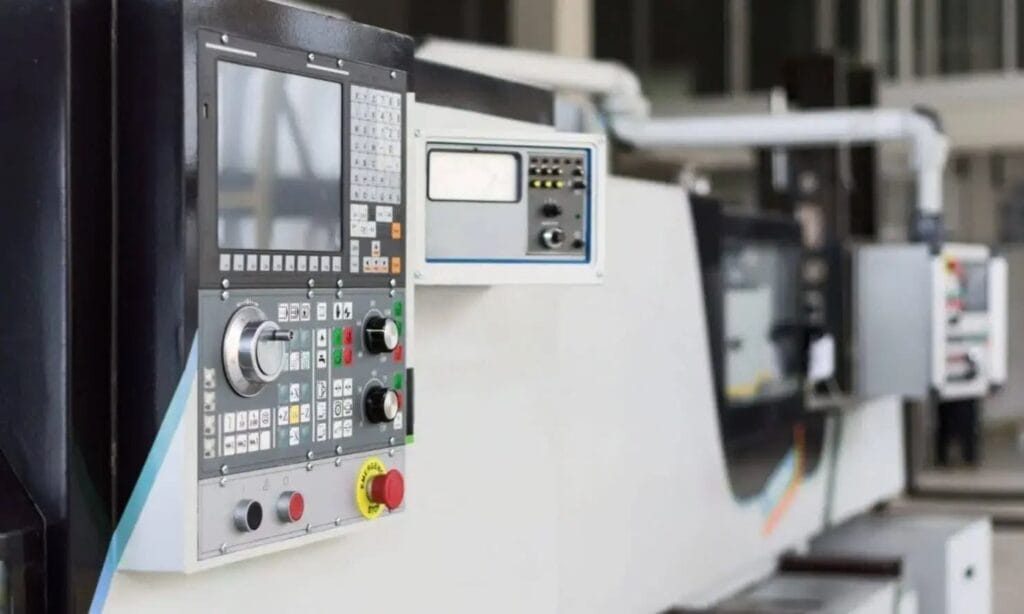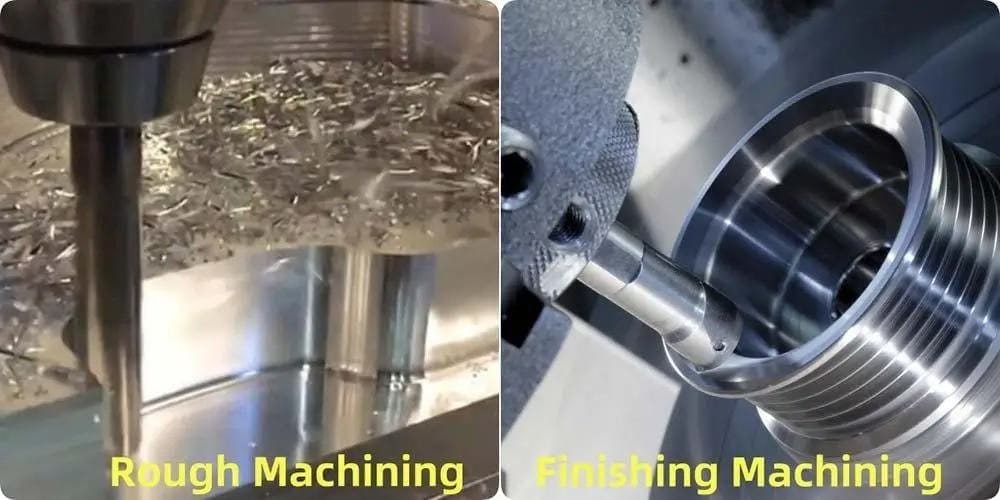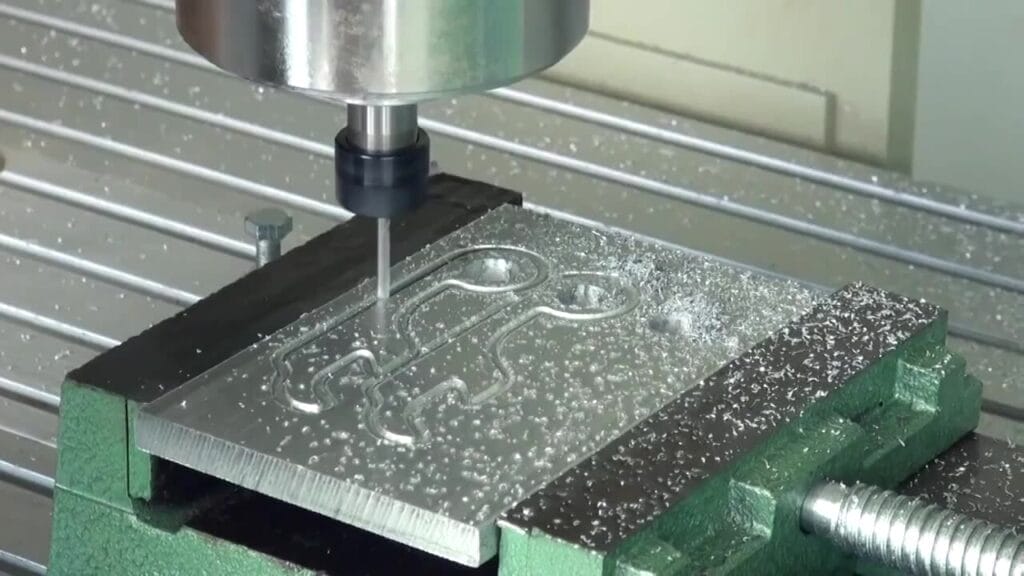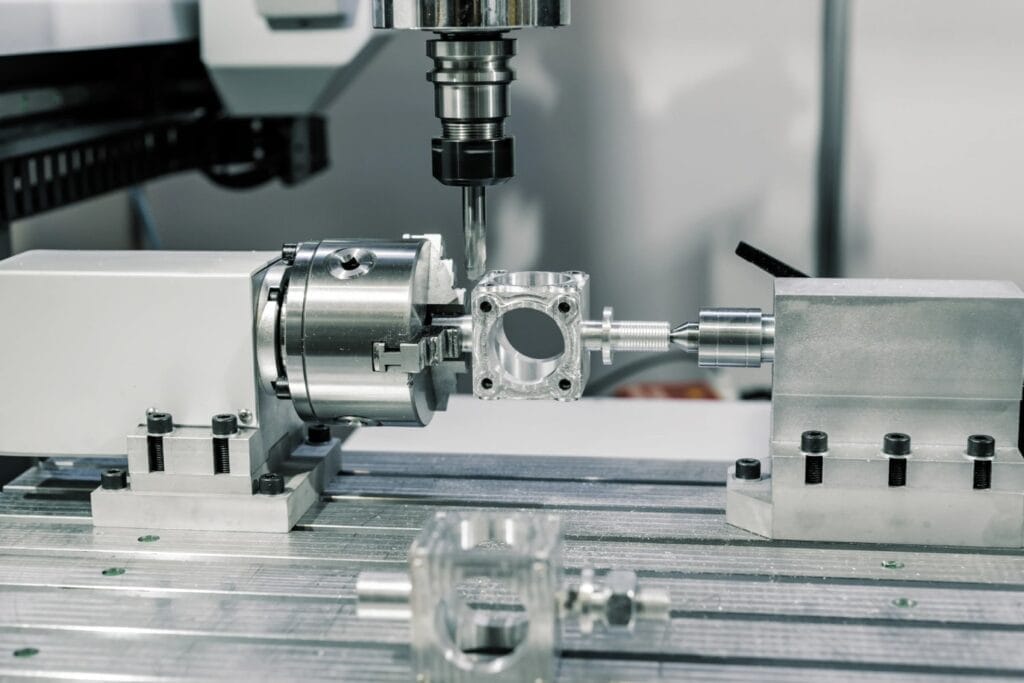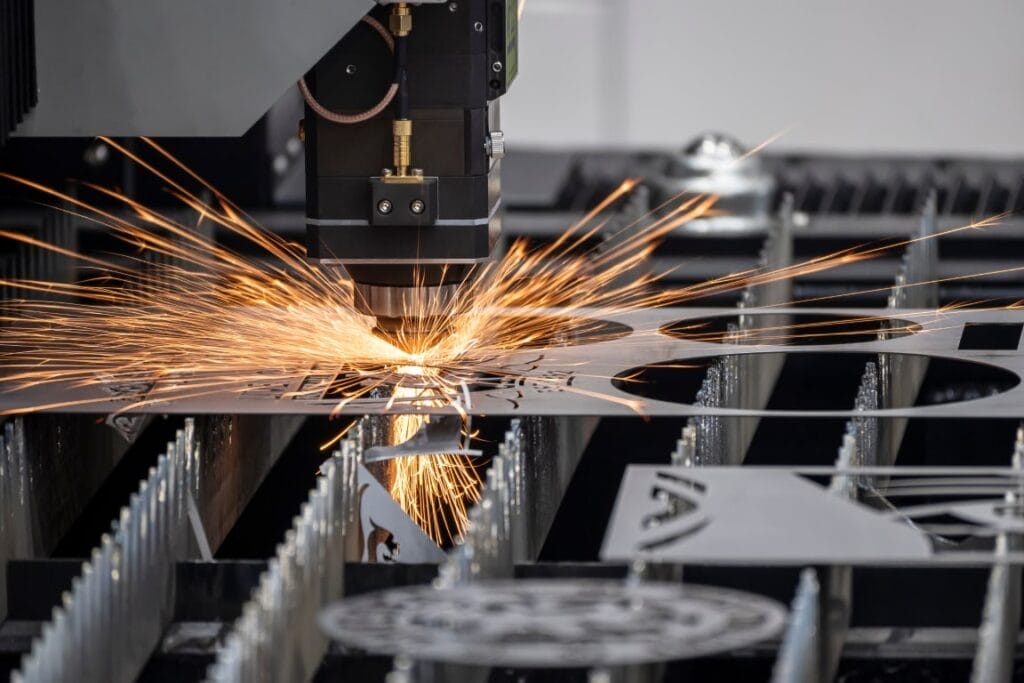- Precision Parts Manufacturer
- Services
- Applications
- Medical
- Screw Machining
Medical CNC Machining | Healthcare CNC Components
Medical CNC screw-machining makes very high-precision threaded components. These kinds of parts are incredibly important for medical tools. We make these parts from scratch with really tight tolerances using ISO 13485 methods and top materials. Our skills make sure that your medical components meet high standards.
- ⬤Service
- ⬤Your Details
- ⬤Submit


What is Medical CNC Screw-Machining?
Medical CNC screw-machining makes parts for the medical industry. This process uses swiss screw machine technology with guide bushings. They hold workpieces super close to cutting tools, keeping the best accuracy.
Swiss-type lathes have a sliding headstock design that lowers deflection when you’re machining really tiny parts. This makes them one of the best options for small medical parts. Multi-axis capabilities mean you can do tons of different operations at the same time to shorten how long cycles take.
Swiss-Type Machine Pros for Medical Components
- Guide bushing support: Places workpiece within 0.05 mm of cutting tool to lessen deflection by a lot
- Sliding headstock: Creates Z-axis motion while bar remains supported, essential for slender parts
- Multi-axis machining: Performs up to 5 simultaneous operations to create complex parts
- Thermal compensation: Maintains dimensional stability across production runs
The global medical screws and plates market was valued at USD 1.43 Billion in 2023 and is expected to reach USD 2.57 billion by 2032, with approximately 900 million medical parts produced annually worldwide.

What Medical CNC Machining Services does Yijin Hardware Offer?
Yijin Hardware provides comprehensive machining service options for healthcare device manufacturers worldwide. Our ISO 13485-certified processes deliver precision machined components for orthopedic, dental, cardiovascular, and neurosurgical applications with documented validation to ensure consistent performance.
We specialize in manufacturing bone screws compliant with ASTM F543 standards, dental implant components, cardiovascular device components, and custom medical parts for unique applications. Each component undergoes rigorous inspection using advanced metrology equipment to verify critical dimensions and surface characteristics.
Specialized Manufacturing Approaches
- Thread formation technologies: Cold forming, thread milling, and helical interpolation
- Hexalobular Torx socket production: Specialized milling for drive features
- Screw head forming: Precision CNC for heads with exact torque specifications
- Surface finishing: Post-machining treatments for optimal biocompatibility
Our defense sector capabilities include specialized operations such as turning and precision CNC milling, boring, facing, threading, and spherical generation. The process creates various profiles, including straight, conical, curved, or grooved surfaces on both external surfaces (traditional turning) and internal surfaces (boring).
Unlike general machine shops, we implement macro programming for thread turning that maintains constant contact area between tool and workpiece, preventing the increasing cutting resistance that occurs with traditional machining methods—a significant advantage for small-diameter components used in the medical field.


What Materials are used for Medical CNC Screw-Machining?
CNC screw machining for the medical field primarily uses 316LVM stainless steel and Ti-6Al-4V ELI titanium, which together account for 90% of all medical screws produced annually. These specialized materials offer the biocompatibility, corrosion resistance, and mechanical properties essential for implantable medical devices and surgical instruments.
316LVM stainless steel contains a specific chemical composition that provides excellent corrosion resistance in physiological environments while maintaining high strength and fatigue resistance. This vacuum-melted variant offers superior microcleanliness and structural homogeneity compared to standard 316L steel, making it one of the commonly used materials in medical CNC machining.
Material Property Comparison
| Property | 316LVM Stainless Steel | Ti-6Al-4V ELI Titanium | PEEK |
|---|---|---|---|
| Density | 8.0 g/cm³ | 4.43 g/cm³ | 1.3 g/cm³ |
| Tensile Strength | 490-690 MPa | 860-965 MPa | 90-100 MPa |
| Biocompatibility | Excellent | Superior | Excellent |
| Corrosion Resistance | Very Good | Excellent | Excellent |
| MRI Compatibility | Limited | Limited | Excellent |
Ti-6Al-4V ELI titanium’s exceptional strength-to-weight ratio and biocompatibility make it ideal for medical implants, while its specific composition ensures consistent performance in biological environments. For specialized applications, we also machine PEEK polymer, offering bone-like mechanical properties and excellent biocompatibility required for medical applications.
How does Yijin Hardware Ensure Precision in Medical Components?
Yijin Hardware ensures exceptional precision through advanced CNC Swiss screw machines specifically calibrated for medical manufacturing. These specialized machines maintain positional accuracy within 0.0002 inches through a unique sliding headstock mechanism that supports workpieces with guide bushings positioned near the cutting tool.
Our precision machining services incorporate specialized fixtures designed to offset cutting resistance and prevent deformation during machining—particularly important for small-diameter medical screws with poor rigidity. We implement proprietary NC macro programs that improve thread processing methods and prevent the increasing cutting resistance that occurs with traditional machining methods.
Key Precision Metrics for Medical Components
- Dimensional tolerances: ±0.0002 inches (±0.005 mm) for critical features
- Surface roughness: Ra values as low as 0.2 μm for implantable components
- Thread profile accuracy: Within 0.0005 inches for medical screws
- Concentricity: Within 0.001 mm for rotating components
In one documented implementation, our specialized approach reduced cycle time from 8 minutes to 2 minutes per part while increasing tool life from 100 parts per tool to 1,600 parts—delivering annual cost savings of $133,468 while improving precision and consistency required in medical device manufacturing.


What are the Applications of Machined Medical Parts?
Machined medical parts serve critical functions across orthopedic, dental, cardiovascular, and neurosurgical applications. Bone screws and fixation hardware form the foundation of orthopedic implant systems, securing fracture plates and spinal fusion devices with precisely engineered thread profiles that optimize bone engagement and stability.
Dental applications include implant bodies, abutments, and prosthetic connection screws with micron-level precision to ensure proper fit and function throughout years of use. The threads on these components require exceptional surface finish (typically Ra < 0.4 μm) to support osseointegration and prevent bacterial colonization.
Critical Medical Applications
- Orthopedic devices: Bone screws, hip stems, femoral heads, spinal systems
- Cardiovascular components: Guide wires, cardiac stents, heart valve parts
- Neurosurgical devices: Micro-threaded fasteners, stereotactic equipment
- Surgical instruments: Blood lancets, stylets, trocars, endoscopic tools
- Dental components: Implant bodies, abutments, prosthetic interfaces
Each application presents unique challenges for medical machining, from the material hardness requirements of surgical instrument manufacturing (HRC 50-55) to the microscopic features required for cardiovascular components as small as 0.02 inches in diameter. The versatility of CNC machining offers solutions for a wide variety of medical equipment needs.
How does Yijin Hardware Ensure Quality and Regulatory Compliance?
Yijin Hardware maintains a comprehensive ISO 13485:2016-certified quality management system specifically designed for medical device component manufacturing. This certification demonstrates our compliance with international standards for quality systems in medical manufacturing and forms the foundation of our regulatory compliance approach.
Our quality processes align with FDA 21 CFR Part 820 requirements for components used in the medical industry, implementing rigorous controls throughout the manufacturing process. We perform material validation, process validation, and product verification according to documented protocols that ensure consistent quality and regulatory compliance.
Standards and Certifications for Medical Machining
- ISO 13485:2016: Medical device quality management systems
- FDA 21 CFR Part 820: Quality system regulations for medical devices
- ISO 10993: Biocompatibility evaluation standards
- ASTM F543: Specification for metallic bone screws
- ISO 14971: Risk management for medical devices
For bone screws, we implement mechanical testing according to ASTM F543 standards, including torsional yield strength, maximum torque, and breaking angle tests. All implantable components undergo biocompatibility verification to ISO 10993 standards, ensuring materials are safe for their intended use. This ensures that medical devices manufactured with our components meet the exacting standards of the medical industry.


What Manufacturing Challenges Exist for Medical Components?
The production of custom medical components presents significant technical challenges that require specialized solutions. Medical device parts have poor rigidity due to their small diameter relative to length, creating risks of deformation and bending during machining operations. Additionally, traditional machining methods cause increasing cutting resistance with cutting depth, further complicating the manufacturing process.
Yijin Hardware implements innovative solutions through 5-axis CNC machining technology, including specialized supporting fixtures that offset cutting resistance and prevent workpiece deflection. Our advanced NC macro programs maintain consistent cutting forces throughout the process, ensuring dimensional stability even for the smallest components.
Material-Specific Machining Strategies
| Material | Challenge | Yijin’s Solution |
|---|---|---|
| Titanium | High elasticity requires stronger cutting forces | Specialized cutting tools with FX7 coating |
| 316LVM | Insufficient plasticity and work hardening | Custom fixtures and optimal feed rates |
| PEEK | Precise temperature control requirements | Thermally-stabilized machining environment |
For titanium components, we use specialized micro end mills with proprietary coatings that significantly enhance tool life while maintaining cutting precision. Our turnkey programs address machining strategy, tooling selection, and cutting parameters as an integrated system—delivering high-quality medical parts that meet the specific requirements of the medical industry.
Why Choose Yijin Hardware for Medical CNC Screw-Machining?
Yijin Hardware delivers unmatched precision, quality, and reliability for high-precision CNC machining of components used in the medical field. Our expertise in CNC turning and CNC milling ensures every component meets the strictest industry standards, with documented validation providing complete confidence in performance.
Our specialized experience with medical-grade materials enables us to achieve optimal results with challenging materials like Ti-6Al-4V ELI titanium and 316LVM stainless steel. We implement advanced machining methods that overcome the inherent challenges of these materials, including titanium’s high elasticity requiring stronger cutting forces and stainless steel’s limited plasticity requiring specialized approaches.
Yijin Hardware’s Unique Advantages
- Specialized macro programming: Controls cutting forces for optimal thread quality
- Advanced material expertise: Optimized parameters for medical-grade materials
- Comprehensive documentation: Complete traceability from raw material to finished component
- Flexible production: From prototype quantities to high-volume manufacturing
- Engineering support: Material selection and design optimization assistance
With Swiss CNC technology calibrated specifically for parts with high precision requirements, we consistently achieve tolerances as tight as ±0.0002 inches—essential for critical medical applications where precision directly impacts patient outcomes. Innovation in medical device manufacturing has become our specialty, making us an ideal partner for complex medical components.


What Our Clients Say
Frequently Asked Questions About Medical CNC Screw-Machining
Medical CNC Swiss screw machining can achieve tolerances as tight as ±0.0002 inches (±0.005 mm) for critical dimensions on most medical components. For bone screws, thread profile accuracy within 0.0005 inches is standard, while dental implant components often require even tighter tolerances for proper interface connections. The achievable tolerance depends on component geometry, material, and specific feature requirements—with smaller components generally requiring more stringent specifications to ensure proper function.
Material properties significantly impact machining strategies for components used in the medical industry, with each material presenting unique challenges. Titanium’s high elasticity requires stronger cutting forces and produces higher stress on cutting edges, necessitating specialized tooling and cutting parameters. Stainless steel medical screws present challenges due to insufficient plasticity and high processing costs, requiring supporting fixtures specifically designed to offset cutting resistance. Our engineering team selects optimal machining methods based on material properties, component geometry, and specific requirements to ensure parts that meet all specifications.
Components for medical applications undergo comprehensive testing and validation to ensure performance in their intended applications. For bone screws, mechanical testing follows ASTM F543 standards, evaluating torsional yield strength, maximum torque, and breaking angle. Biocompatibility testing according to ISO 10993 standards ensures materials are safe for their specific applications. Surface finish testing measures Ra values to verify appropriate surface characteristics for the component’s intended use. Process validation establishes manufacturing parameters that consistently produce parts that meet all specifications, with statistical process control monitoring critical dimensions during production to verify ongoing compliance with validated requirements.
CNC Resources
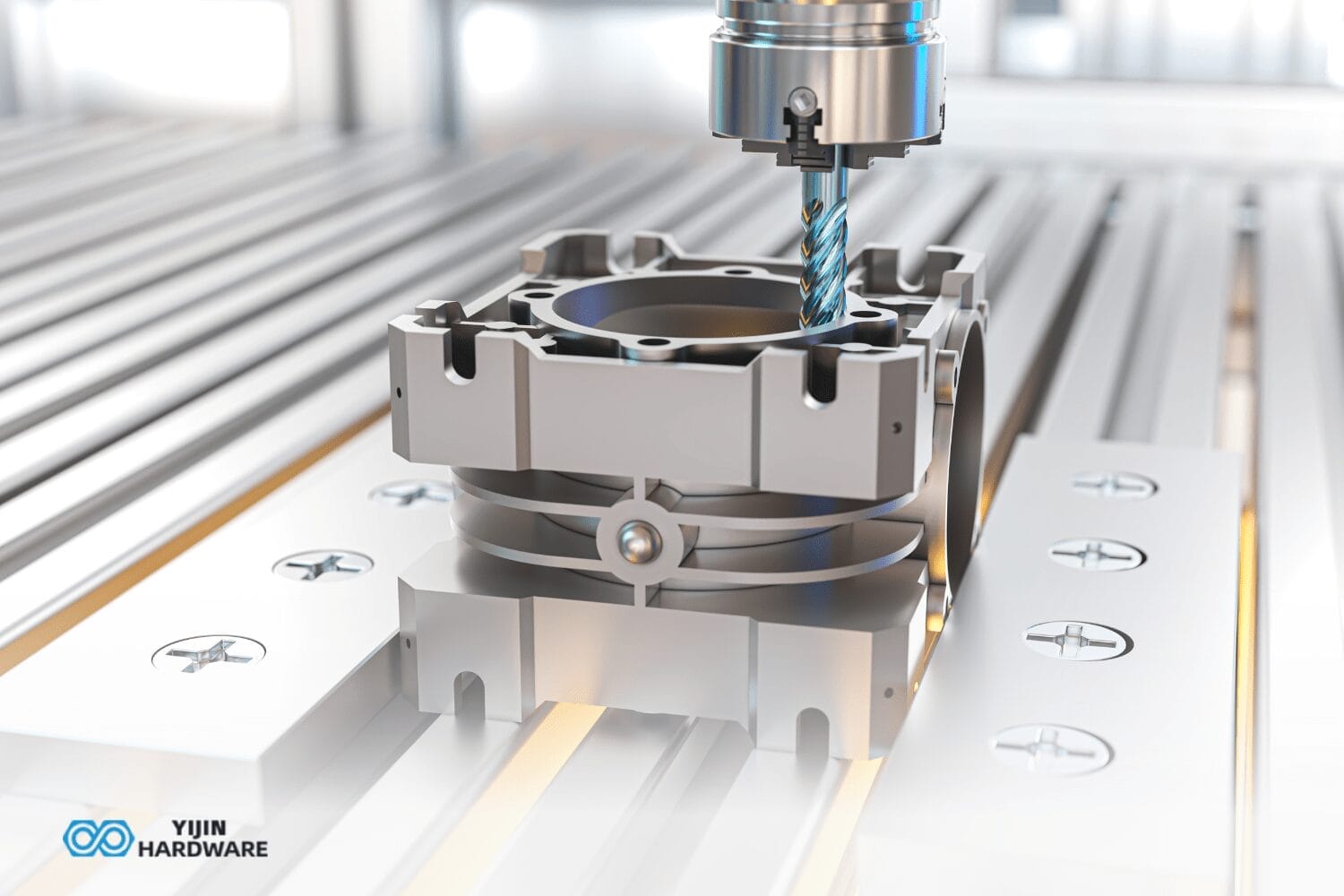
Top 10 CNC Automation Robots Manufacturers
CNC automation robots are totally changing how manufacturers approach production. They’re taking over repetitive and precision-critical tasks that used to
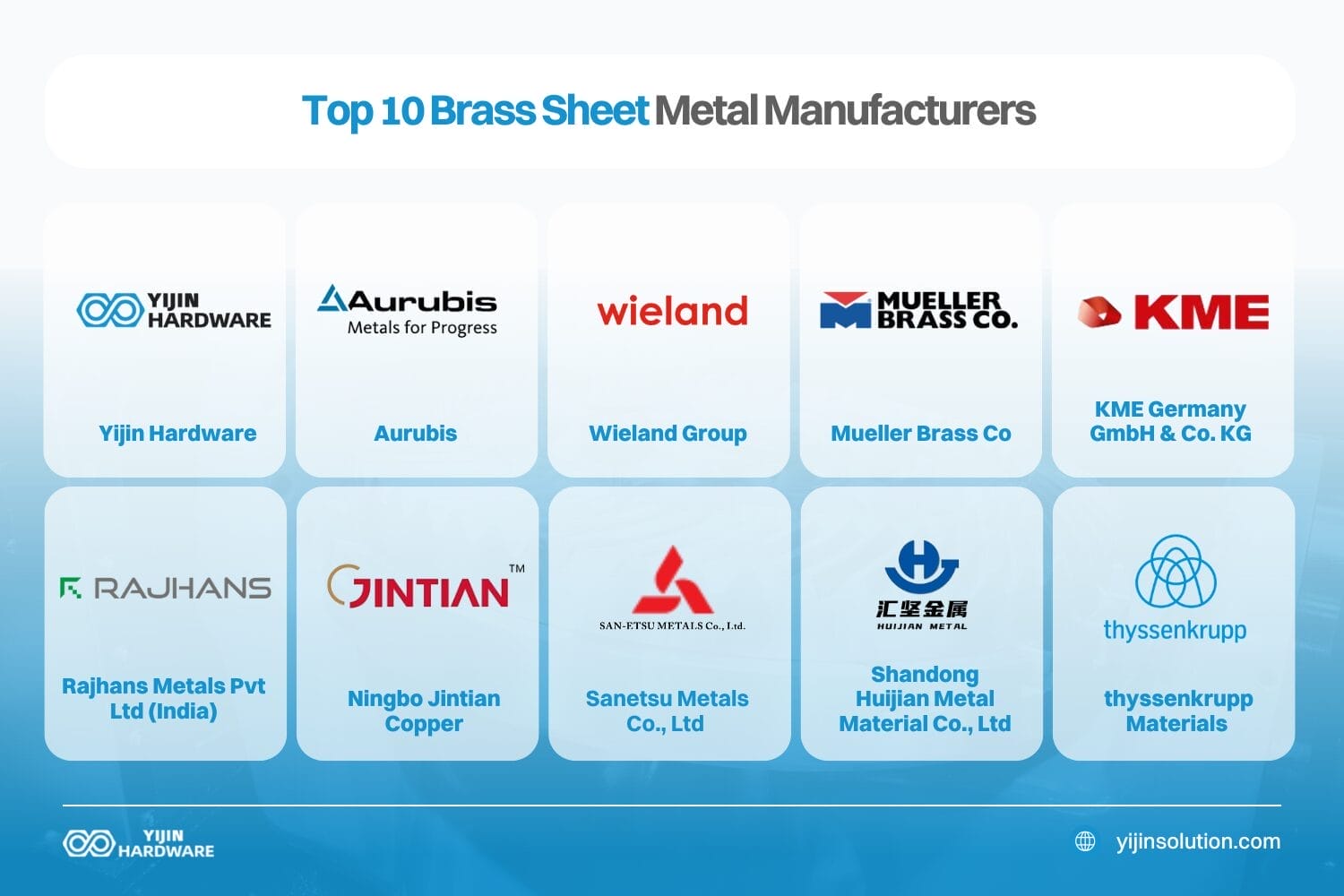
Top 10 Brass Sheet Metal Manufacturers
Brass sheet metal combines properties that make it valuable across multiple industries and attractive for architectural and decorative uses. Whether
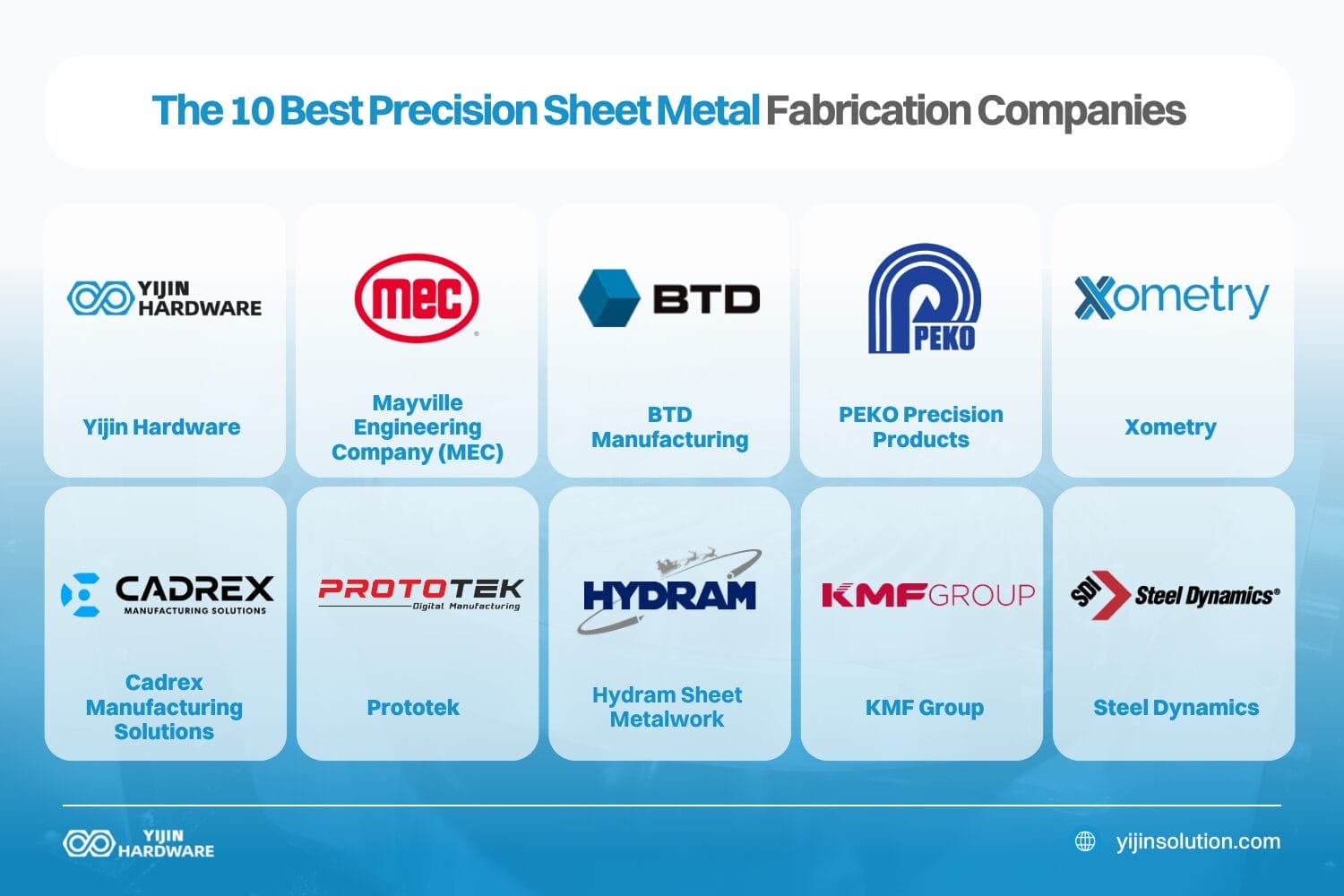
The 10 Best Precision Sheet Metal Fabrication Companies (Complete Guide)
Precision sheet metal fabrication isn’t your average metal shop work — it’s manufacturing that hits tolerances measured in thousandths of
Start today. Get parts made fast.
Free Machined Parts Design to Your Projects with Fast Turnaround Times.


